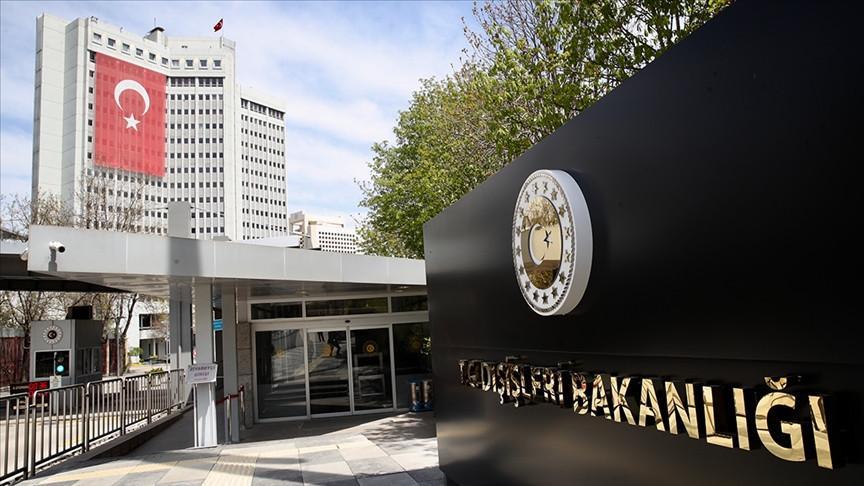
Türkiye has expressed "deep concern" over U.S. airstrikes on Iran’s nuclear facilities, calling for restraint from all sides to avoid greater conflict.
"The ongoing developments could lead to a regional conflict escalating to a global level. We do not want this catastrophic scenario to come to life," the Foreign Ministry said on June 22 in a written statement.
Ankara is "deeply concerned" about the possible consequences of the attack, it added.
"We have repeatedly drawn attention to the risk of the conflict that started with Israeli aggression in the region spreading and the destabilization of the security environment," read the statement.
"Today’s attack by the U.S. on Iran’s nuclear facilities has maximized this risk."
Ankara urged all involved parties to “act responsibly,” immediately cease attacks and avoid actions that could cause further loss of life or destruction.
"The only solution to the conflict over Iran's nuclear program is through negotiations. We call on the international community to support efforts to find a diplomatic solution between the parties," the ministry said.
"Türkiye is ready to fulfill its responsibilities and make constructive contributions."
On June 20, British, French, German and EU top diplomats held talks in Geneva with Iranian Foreign Minister Abbas Araghchi, a week after Israel started its bombardment of Iranian sites.
They urged Iran to revive diplomatic efforts with the United States to find a solution in the standoff over its nuclear program.
Over the weekend, Araghchi also held talks with Turkish and other regional officials on the sidelines of an Organization of Islamic Cooperation summit in Istanbul.
Turkish President Recep Tayyip Erdoğan delivered an address at the event to urge unity among Muslim nations in opposing Israel’s actions in the region.
"We will not allow the establishment of a new Sykes-Picot order in our region with borders to be drawn in blood," Erdoğan said, referring to a secret deal between Western powers to divide up the region.
In 1916, the English and French met in secret to define their mutually agreed spheres of influence and control if the Ottoman Empire was partitioned — an agreement dependent on an Allied victory during World War I.
The agreement proposed France would have control or influence over modern-day Syria and Lebanon, and Britain over modern-day Iraq, Jordan and parts of Palestine.
Erdoğan condemned Israeli strikes across Gaza, Lebanon, Yemen, Syria and now Iran as acts of "banditry," blaming Israeli Prime Minister Benjamin Netanyahu’s government for obstructing peace efforts.
"We have no doubt that the Iranian people, with their solidarity in the face of difficulties and strong state experience, will hopefully overcome these days," he added.